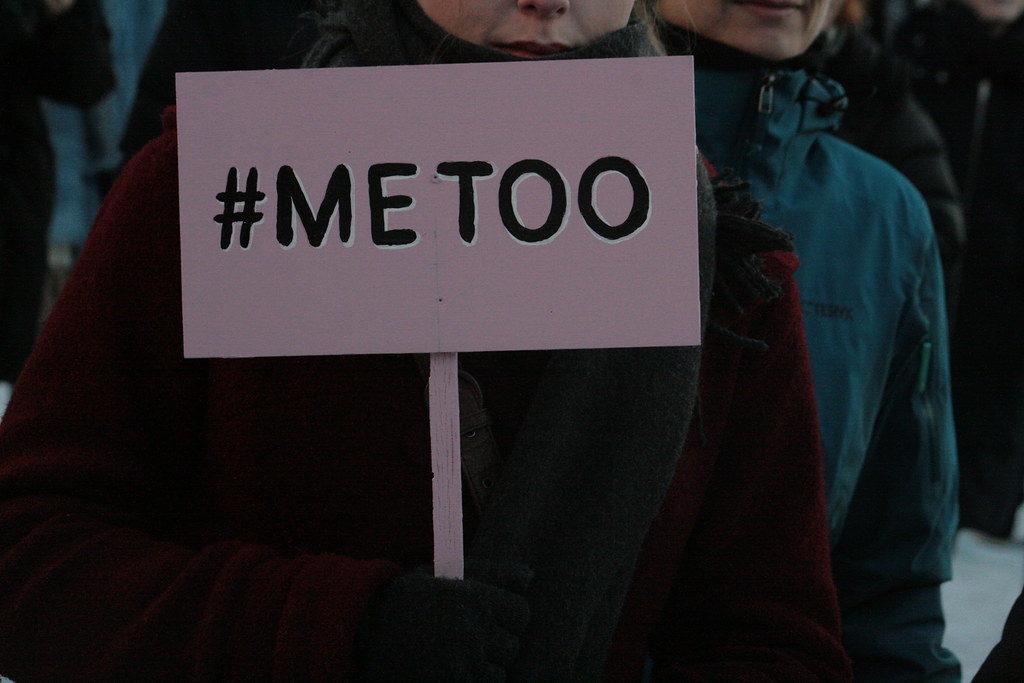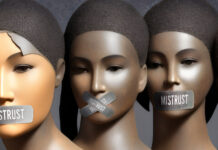A group of Australian researchers recently released an article investigating the interpersonal disclosure experiences of sexual abuse survivors. While sexual abuse is connected to future psychiatric problems, the authors sought to develop a deeper understanding of the issue to inform prevention and intervention efforts. They found that over 96% of their sample met criteria for major depressive disorder (MDD), over 82% met criteria for post-traumatic stress disorder (PTSD), and more than half had considered suicide at some point in their lives. The qualitative timeline analysis suggests that experiences of self-blame, betrayal, and vulnerability arose when disclosure of survivors’ sexual assault experience was ignored, not believed, or met with threats of retribution.
“Overall, our study illustrates the potentially important role that negative disclosure experiences play in generating persisting psychosocial vulnerability in the survivor,” write the authors.
“Women encountering negative disclosure experiences reported an array of adverse psychosocial outcomes in their subsequent lives including social isolation, drug-taking, recurrent or persisting mental disorder and future risk of abuse, including bullying at school. A general state of psychosocial vulnerability that persists over time may be an important foundation for understanding the risk for adult revictimization in child survivors of sexual abuse.”

The authors point to the #MeToo campaign as an unprecedented opportunity to break the silence for all women who have been sexually abused. They aimed to analyze interpersonal responses from family members to understand critical milestones related to the disclosure of abuse, plotting key traumatic events, reactions, and mental health via a qualitative timeline.
Given that almost a quarter of adult women report childhood exposure to sexual abuse and that it is common to experience the first onset of a mental disorder shortly after, the authors suggest that early therapeutic intervention may be critical in halting this trajectory.
Theoretically, disclosure may offer a chance for emotional recovery, though, in reality, it often elicits negative, unsupportive reactions. Feelings of guilt or shame may delay disclosure, though the authors aimed to quantify further and describe the impact of disclosure.
Some studies have attempted to bridge this gap, though they have either failed to include mental health outcomes or have focused on disbelief rather than trying to understand the attribution of victim-directed blame. Further, it is known that betrayal trauma can occur when trust has been breached, and that victimized women may be at risk for later victimization. The authors sought to better understand the timeline and causal relationships between these different experiences.
The researchers elicited a spontaneous account of familial response to the disclosure of sexual abuse, the survivor’s emotional response, and the subsequent psychosocial consequences via a gender-informed narrative history approach. The study was introduced to women by sexual assault counselors at a sexual assault service they were attending.
Women who were not in an immediate emotional crisis and whose last experience of sexual assault was at least a month ago were recruited and subsequently interviewed. The counselor and participant worked together to create a timeline where significant events occurred, focusing on contextual factors, mediating emotional responses, and a description of events that aided or harmed recovery. This allowed researchers to draw temporal connections between the abuse, response of the world to this disclosure, and the survivor’s psychological state.
In nearly half their sample of thirty women, sexual abuse first happened in childhood. Twenty-eight of the women experienced PTSD, and twenty-four women experienced MDD. Negative disclosure experiences during childhood were more strongly associated with meeting criteria for a mental disorder than those that occurred in adulthood. Sixteen of the participants reported experiencing suicidal ideation in their life.
“In cases of childhood abuse occurring outside the home by someone previously known, there was almost universal evidence of general neglect in the care and protection of the child in the family,” write the authors.
“Ten participants (71%) with early childhood sexual abuse reported revictimization as adults. As indicated by the details provided hereunder, being ignored, overtly blamed or threatened for the abuse following disclosure appeared from analysis of the timeline interview data to be most closely associated with the onset of subsequent mental disorder symptoms and future risk for sexual abuse.”
A variety of themes emerged from the data analysis, including being ignored or not believed, being blamed, or being threatened. The authors suggest that self-blame and guilt were associated with being ignored or blamed and that the resulting sense of betrayal may have been psychologically harmful.
“Overall, our study illustrates the potentially important role that negative disclosure experiences play in generating persisting psychosocial vulnerability in the survivor,” write the authors.
“Women encountering negative disclosure experiences reported an array of adverse psychosocial outcomes in their subsequent lives, including social isolation, drug-taking, recurrent or persisting mental disorder and future risk of abuse, including bullying at school. A general state of psychosocial vulnerability that persists over time may be an important foundation for understanding the risk for adult revictimization in child survivors of sexual abuse. The period immediately following a disclosure, therefore, may prove to be a critical window where survivors are particularly susceptible to effects of either helpful or harmful interventions by confidantes.”
With this in mind, the authors proposed several points of improvement and intervention. First, they stressed that parents need to understand that their affirmation and care following abuse is essential. They then called for more ubiquitous legal and welfare interventions, early detection for at-risk children, for trauma-informed care in healthcare practitioners and community agencies, and, ultimately, for societal change to overcome denial and silence.
The #MeToo movement has the power to promote societal change at the community level by highlighting men’s culpability instead of women’s responsibility, and by avoiding denial and victim-blaming.
****
Rees S, Simpson L, McCormack CA, et al. Believe #metoo: sexual violence and interpersonal disclosure experiences among women attending a sexual assault service in Australia: a mixed-methods study. BMJ Open 2019;9:e026773. DOI:10.1136/ bmjopen-2018-026773 (Link)















“With this in mind, the authors proposed several points of improvement and intervention. First, they stressed that parents need to understand that their affirmation and care following abuse is essential. They then called for more ubiquitous legal and welfare interventions, early detection for at-risk children, for trauma-informed care in healthcare practitioners and community agencies, and, ultimately, for societal change to overcome denial and silence.”
No. This absolutely breaks my heart. The worst thing I ever did was tell a neighbor what was happening to me. It changed my life. It brought social services, foster care, years and years and years of harmful child therapy. It allowed my family to target me as the problem and still get away with abuse. Sexual abuse was not the worst thing that ever happened to me. Professional intervention was. This is the worst advice I’ve ever read published here. The mental health system abuses children after they’ve been abused and they do it with the aid of courts, CPS, teachers.
If I could change one thing about my life, I would have kept silent about childhood sexual abuse. Intervention hurts kids.
Report comment
Kindredspirit, My heart breaks reading your poignant comment. What an appalling reality “the mental health system abuses children after they have been abused”. Thanks for your courage and fervour to speak out and try stop this from happening to more innocent children.
Report comment
Thanks Rosalee. It’s certainly a topic I’m very ambivalent about. I do believe that children are harmed by abuses within the family, but I am no longer convinced that either our child protective services or pediatric mental health system is helpful in the majority of cases when one looks at the outcomes of intensive intervention that focuses on the child. It is heartbreaking that what is billed as “help” so often adds additional layers of harm.
Report comment
Kindredspirit,
I agree wholeheartedly, and can add that disclosing as an adult also brings enormous consequences. One is seen as lesser, as broken, as just plain wrong and incapable of healing and recovery. In the eyes of the mental health industry, you become no more than the worst of their projections.
Consider closely before disclosing…at any stage in life!
Report comment
Yes, my disclosures as an adult have often been met with distancing and treatment like I’m unstable or even weird. I guess I’ve had to learn to be ok with that.
My first mother-in-law – the mother of the 29 year old man who married me at 16 – told me straight to my face that she didn’t believe a word I said about childhood abuse of any kind because she knew my parents and they were “good people”. My parents are/were likeable in many ways and have/had many great qualities. That doesn’t change my mother’s history of neglect and physical abuse or my father’s proclivities for sexual activities with toddlers.
I think the most stunning responses for me to cope with still were the people who, after hearing me disclose clear abuses, gave my parents suggestions on further abusive techniques as they saw my “bad” behavior as the “real” issue.
I had a babysitter who would say “if you were my kid I’d make you kneel on hard rice patties with your nose stuck to a circle on the wall. A few hours of that would straighten you out!” Or my favorite still, the middle school principle who instructed my father to whip me below the knees because he couldn’t be prosecuted for bruises below my knees. When my sister-in-law found out my brother had been convicted for molesting me, she went on a tirade about how horrible it was for a little girl to falsely accuse her brother of rape – a word I’ve never used since five year olds don’t usually have to be forced.
People would not just deny the abuses, they’d outright excuse them – Virginia Beach Social Services called my mother admitting to sitting on me and beating my head into a concrete floor “parent-child conflict”. Her excuse? I was just such a BAD KID, she “lost her temper.”
The biggest issue that continues to plague efforts at protecting kids is people’s judgments about specific parents and specific children. Parents who can afford lawyers are usually fine and get away with untold horrors. Parents who can’t often lose children due to simple neglect that is poverty induced. Kids who fight back like I did get targeted. Kids who don’t may be just as miserable but will have better outcomes if they aren’t targeted for intervention.
The whole state of affairs is a complete shit show when it comes to helping victims of abuse at any age. I suppose at the ripe old age of 40, I should be “over it” by now. And in many ways I am. But I still feel an obligation to speak up against the increasing targeting of abused kids and young adults struggling to finish raising themselves in a world that seems harsher by the day. I’m really at the point of saying fuck anyone who can’t handle the unvarnished truth about abuse – especially sexual abuse, which still seems to be the ultimate taboo subject, despite the current “Me Too” era.
Report comment
Yes, in this insane world where spirit cooking and pedophilia art is all the rage with the powers that shouldn’t be.
http://ibankcoin.com/zeropointnow/2016/11/26/sick-lets-revisit-the-podesta-penchant-for-pedophilic-cannibalistic-and-satanic-art/#sthash.oI5Ua3VZ.dpbs
A person can’t be a Spirit led, anti-child abuse artist, without the “mental health” workers trying to silence, poison, and steal from you. The child rape covering up obsession of our obnoxiously intrusive and deceptive, child rape covering up, “mental health” criminals is staggering.
If we lived in a sane society, the pedophiles would be the ones being locked up, not the child abuse survivors and their concerned parents.
Report comment
“Culture of Denial” and cover up is right, especially by our “mental health” workers.
“Theoretically, disclosure may offer a chance for emotional recovery, though, in reality, it often elicits negative, unsupportive reactions.” Denial of sexual abuse is an enormous problem with our “mental health” workers. It’s a systemic problem, that occurs because NO “mental health” worker may EVER bill ANY insurance company for EVER helping any child abuse survivor EVER. So they have to deny the real problem and incorrectly declare the problem is a make believe “mental illness.”
https://www.psychologytoday.com/us/blog/your-child-does-not-have-bipolar-disorder/201402/dsm-5-and-child-neglect-and-abuse-1
And this inability to bill insurance companies to help child abuse survivors has resulted in millions and millions of child abuse survivors, and their concerned parents, being misdiagnosed with the billable DSM disorders instead. To the extent that today, “the prevalence of childhood trauma exposure within borderline personality disorder patients has been evidenced to be as high as 92% (Yen et al., 2002). Within individuals diagnosed with psychotic or affective disorders, it reaches 82% (Larsson et al., 2012).”
https://www.madinamerica.com/2016/04/heal-for-life/
This is huge percentages of child abuse survivors who’ve been misdiagnosed with the other DSM disorders, and it shows that the number one actual function of our “mental health” workers is covering up child abuse. And this child rape denying and covering up has been a problem with the “mental health” workers for over a century.
https://www.indybay.org/newsitems/2019/01/23/18820633.php?fbclid=IwAR2-cgZPcEvbz7yFqMuUwneIuaqGleGiOzackY4N2sPeVXolwmEga5iKxdo
How lovely, our “mental health” workers always want to blame the parents, even when the abuse occurs outside the home?
“In cases of childhood abuse occurring outside the home by someone previously known, there was almost universal evidence of general neglect in the care and protection of the child in the family,” write the authors.
Actually, we’re the parents who end up scaring the satanic schools – that have pedophiles on their school boards – into closing the school forever. While our asinine police do NOTHING! But tell a concerned mother, who had the medical evidence of the abuse of her child handed over, to “Go talk to a psychiatrist.” Despite the reality that it’s NOT the job of the psychiatrists to arrest the pedophiles.
We need our “mental health” workers to get out of the child abuse covering up business, and we need the police to start arresting the pedophiles. And all this systemic child rape covering up – and pedophile empowerment – by our “mental health” workers is destroying our nation.
https://www.amazon.com/Pedophilia-Empire-Chapter-Introduction-Disorder-ebook/dp/B0773QHGPT
Stop aiding, abetting, and empowering the pedophiles, “mental health” workers! Stop blaming the parents! The schools that have pedophiles on their school boards are the guilty parties. The pedophiles are the guilty. And the child rape covering up ‘mental health” workers are the guilty, too.
Arrest the pedophiles! And arrest all those “mental health” criminals who profiteer off of misdiagnosing millions and millions of child abuse survivors.
Report comment
“Arrest the pedophiles! And arrest all those “mental health” criminals who profiteer off of misdiagnosing millions and millions of child abuse survivors.
Yes Someone Else, nothing is more pathetic and criminal than pedophiles and the “mental health” professionals who slap damaging psych labels on victims of child abuse.
Report comment
After psych abuse, I was not believed. My friends called me psychotic, my treatment team called me psychotic and I couldn’t get a single person to take me seriously or to listen. It was the loneliest time of my entire life.
Report comment
Awful…
Report comment
Ditto.
Report comment
I would suggest that all untruths hurt people, including doubting all psychic pain and suffering.
Report comment
Blaming the victim for a “broken brain” and “defective” biology is all psychiatry has to offer.
Once they have discredited you as SMI and drugged you out of your gourd you can look forward to even more outrageous violations from the folks pretending to “help.” And all the so-called normal folk walking around. Sad.
The APA claims, you wouldn’t be overwhelmed by emotional pain if you weren’t a genetically inferior defective to start with. Crushing down the already suffering is what psychiatry is there for. Enabling abusers.
Report comment
One would fervently hope “Theoretically, disclosure may offer a chance for emotional recovery”. It’s reprehensible that… “…in reality, it often elicits negative, unsupportive reactions.”
I cannot think of a more revolting crime than children being traumatized and victimized by sexual abuse or any kind of abuse and for professional intervention to generate more trauma through invalidation, disbelief, victim-blaming or cover-up is another revolting crime in of itself.
Report comment
I agree totally. It would be better they told no one than that they are invalidated or disbelieved or blamed in any way for what happened to them.
Report comment
Let’s get rid of the “mental health” language here!
How about: “Survivors’ reality is badly messed with when people don’t believe them.”
Or: “Survivors of sexual abuse find it invalidating, infuriating, and depressing when people pretend that what happened to them wasn’t real.”
Or: “Denying the reality of sexual abuse survivors is another form of abuse.”
It doesn’t “affect the mental health” of abuse survivors. It attacks them directly and undermines their safety and sense of reality, and it does so intentionally. It is normal to be pissed and confused and self-blaming after someone abuses you, and even more so when those entrusted to protect you protect your abusers instead.
Report comment
Gavin. PLEASE don’t forget/neglect the sexual abuse of boys/men by WOMEN!!
Report comment
There is no such thing as ~Mental Illness~ or ~Mental Health~. For the most part the reason these fallacies exist is to perpetuate denial of abuse.
And in large measure ~Autism/Asperger’s/Neurodiversity~ work the same ways.
Report comment